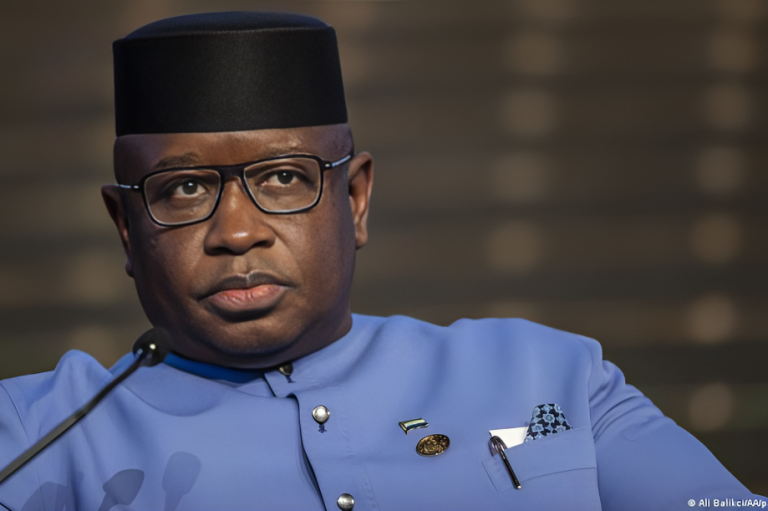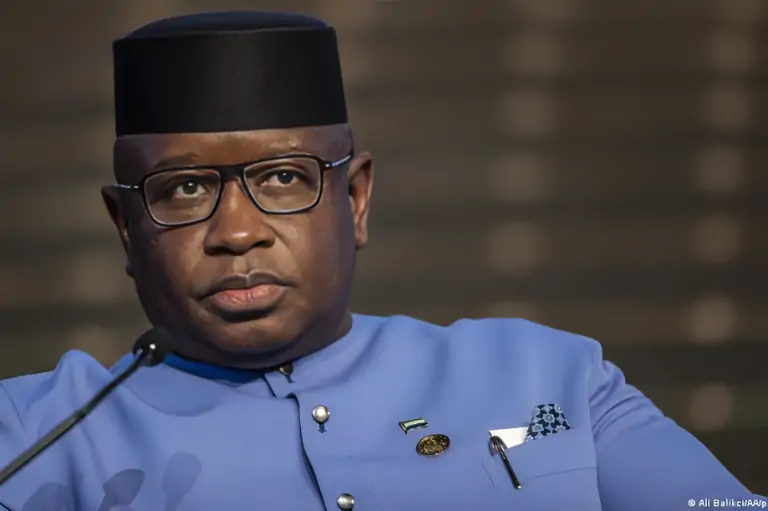

sierra leones president bio stabilizes the nation amidst violent uprisings
President Julius Maada Bio found himself at the helm of a nation in crisis as violent hostilities shook the foundations of Freetown in Sierra Leone. Characterized as a deliberate attempt to undermine the state, Bio swiftly took to state television to assure the populace that order had been reinstated. The day bore witness to unsettling incidents: unidentified intruders attempted unauthorized access to a military armory, leading to tense confrontations between security personnel and the trespassers. Furthermore, a significant jailbreak resulted in the release of numerous inmates, escalating the sense of unrest and insecurity across the city.
Bio, in a resolute stance, vowed to hold the instigators accountable, promising swift detention for those responsible for orchestrating the chaos. Despite this commitment, detailed information regarding the detained leaders remained withheld, fostering speculation and unease among the public. Minister of Information Chernor Bah sought to reassure citizens, affirming the government’s unwavering control over Freetown’s security. However, a palpable sense of apprehension continued to loom. Meanwhile, on the global stage, entities such as ECOWAS and the EU voiced profound concerns, condemning any actions that disrupted constitutional order and urging for its preservation.
The Economic Community of West African States (ECOWAS) issued a statement expressing unwavering support for Sierra Leone’s current government while demanding the swift arrest of those involved in the disturbing events. “ECOWAS reiterates its principle of zero tolerance for unconstitutional changes of government,” the organization emphasized. This statement underscored the regional gravity of the situation, given the historical backdrop of coups and political instability in neighboring West African countries. The unrest in Sierra Leone reignited concerns of a potential coup attempt within the region, drawing attention to past incidents in Mali, Burkina Faso, Niger, and Guinea.
The recent upheaval unfolded against the backdrop of contentious presidential and general elections held in June 2023. Despite being one of the world’s poorest nations, Sierra Leone grapples with severe economic challenges, further exacerbating the prevailing political tensions. The abrupt eruption of violence, reminiscent of troubled times in the country’s history, disrupted the lives of its citizens. Reports from witnesses like Susan Kargbo, who woke to the sounds of gunfire from the Wilberforce barracks, depict the pervasive sense of fear and uncertainty that gripped Freetown.
The government’s swift response and imposition of a nationwide curfew aimed to restore a semblance of peace. However, challenges persist as authorities navigate the aftermath of the unrest. With civil aviation restricting airspace and international bodies expressing solidarity with Sierra Leone‘s constitutional order, the nation remains at a pivotal moment in its quest for stability and progress.
Rob Walter Resigns his Position as coach for the Proteas men's team for white-ball games because personal problems needed attention.…
Starting April 2, South African drivers will get lower costs when filling their tanks as fuel prices decrease for all…
The U.S.-based driver training company Zutobi analyzed road safety worldwide and found South Africa stays last in driving danger since…
The Basketball Africa League (BAL) returns for its 2025 season with exciting changes and developments. Since 2019 the NBA-linked basketball…
The Somali president supports their military forces to eliminate the threats from Al-Shabaab, ISIS, and Al-Qaeda. The Somali National Army…
UAE President Sheikh Mohamed bin Zayed Al Nahyan held talks with President Faustin Archange Touadéra of the Central African Republic…
This website uses cookies.